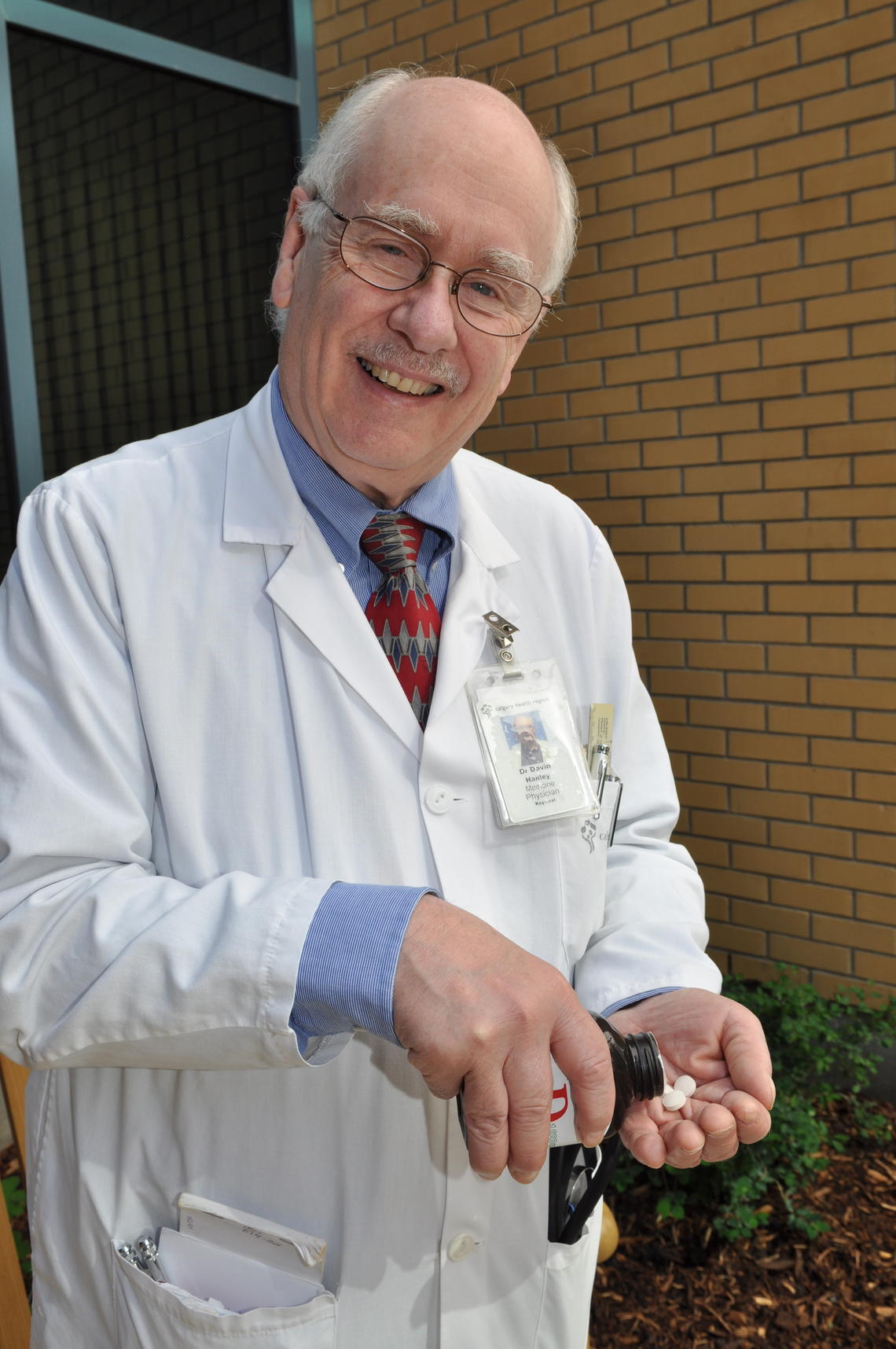
Dr. David Hanley will work with fellow researcher Steven Boyd on a vitamin D study on bone health.
Bruce Perrault
Jan. 23, 2014

Dr. David Hanley will work with fellow researcher Steven Boyd on a vitamin D study on bone health.
Bruce Perrault
Chris Lunn is an active retiree. However, he recently broke his foot while skiing, which got him thinking about his bone health and how to keep his bones strong into his retirement years. Lunn understands the importance of calcium and vitamin D to build healthy bones, but he's confused by the variety of opinions about how much vitamin D one should take to maintain healthy bones.
Health Canada recommends 600 international units (IU) of vitamin D, daily, through diet and supplements, for adults up to age 70, and 800 IU of vitamin D for those above 70. Other sources like Osteoporosis Canada suggest adults, at risk of osteoporosis, should take 800 - 2,000 IU of vitamin D. Naturopaths may tell you that adults should be taking 10 to 20 times the recommended amounts of vitamin D, every day, to achieve its full benefits.
Who is right?
University of Calgary researchers Steven Boyd and Dr. David Hanley are looking for a definitive answer to that question. Hanley and Boyd will examine how much vitamin D is required to build and maintain strong healthy bones. "There are currently no large-scale, high quality studies that look at the relationship of bone strength and vitamin D dose," says Boyd. "This study will provide evidence that will help people determine how much vitamin D is appropriate for their bones."
Hundreds of volunteer study participants required
The University of Calgary study recruited 300 volunteers between the ages of 55 to 70. Those study participants will then be randomly streamed into one of three arms of the study. One hundred volunteers will receive a daily dose of 400 IU of vitamin D; another one hundred volunteers will receive 4,000 IU of vitamin D; and the remaining one hundred volunteers will receive 10,000 IU of vitamin D. Neither the volunteer nor the researcher will know how much vitamin D he or she is receiving. Drs. Hanley and Boyd will track the study participants for the next three years.
Volunteers will have both their bone density and strength measured by the world's first XtremeCT2 machine, located in the Bone Imaging Laboratory at the University of Calgary. With detail never seen before, researchers will be able to measure a participant's bone strength. Those enrolled in the study will also be tracked for other benefits from vitamin D, such as quality of life as it relates to mood and depression.
The researchers are funded by Alberta Innovates - Health Solutions (AIHS).
About the researchers
Steven Boyd, PhD is an Alberta Innovates - Health Solutions' Senior Scholar. He is a professor in the Faculty of Medicine with a joint appointment between the Faculty of Kinesiology and Schulich School of Engineering at the University of Calgary. He is also a member of the McCaig Institute for Bone and Joint Health.
David Hanley, MD, FRCPC is an endocrinologist and a member of the Alberta Innovates - Health Solutions' Osteoarthritis Team. He is the medical director for the Calgary Health Zone's Osteoporosis and Metabolic Bone Disease Centre and a professor in the departments of Medicine, Oncology, and Community Health Sciences at the University of Calgary. He is also a member of the McCaig Institute for Bone and Joint Health.